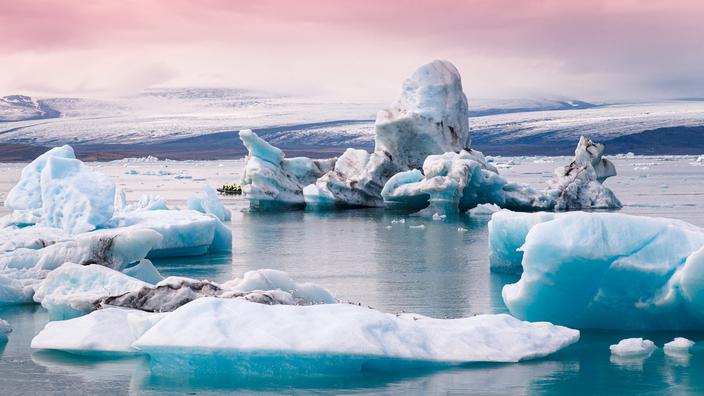Despite new commitments from more than 120 countries registered as of September 30, the gap with what would be necessary to comply with the Paris Agreement aimed at limiting global warming to well below + 2 ° C, if possible to +1.5 ° C compared to the pre-industrial era,
"remains important"
, concludes the report released Tuesday by the United Nations Environment Program (UNEP).
Read alsoTo limit global warming, coal, gas and oil must remain underground
Thus, the new promises
"reduce the emissions projections for 2030 by 7.5%, while (a decrease of) 30% would be necessary for + 2 ° C and 55% for 1.5 ° C"
.
Clearly, this reduction
"should be four times greater to be compatible with + 2 ° C and nearly eight times greater to be compatible with + 1.5 ° C",
explains to AFP Ms. Anne Ohloff, one of the authors of the report.
Expected increase of 3 to 4 ° c
"There has been progress (...) but we are very far from where we should be"
, she insists.
The first
“Nationally Determined Contributions”
(NDC) of some 200 signatories to the Paris Agreement were leading the planet towards a warming of +3 or 4 ° C.
With the new NDCs filed by 143 countries and the not yet formalized promises of major savings like China for 2030, the world is now heading towards a warming of at least + 2.7 ° C.
Read alsoWhat will be the impact of warming on our children?
In addition to the NDCs, which detail short-term targets, 49 states representing 57% of global emissions have also formally committed to carbon neutrality by mid-century (a majority for 2050, a few for 2060 or 2045).
These commitments would make it possible to plan an additional half degree and therefore to arrive at + 2.2 ° C, notes the report.
But the researchers warn of the risks of greatly exceeding these predictions.
First, they assume that the commitments will be fulfilled, while a number of previous commitments have still not been met.
So, as a group, the G20 countries are not on track to meet their previous NDCs.
As for the strategies towards carbon neutrality, they are
"vague"
.
"Imminent danger"
And other signals are worrying.
After the 5.4% drop in emissions in 2020 due to the Covid-19 pandemic, a significant rebound should be observed in 2021 and States have not taken the opportunity of the recovery plans to accelerate the green transition , with only 17 to 19% of these investments likely to reduce emissions, says the report.
Read alsoEnvironment: tools to estimate your own carbon dioxide emissions
In addition, scientists' predictions are based on probabilities.
The report estimates that there is a 66% chance of not exceeding + 2.2 ° C.
But in this same scenario, there is "more than 15% probability that the warming will exceed + 2.5 ° C by the end of the century and a little less than 5% that it will exceed + 3 ° C".
"It's scary, it further emphasizes the need to go as low as possible,"
notes Anne Ohloff.
Especially since every fraction of a degree of warming counts, multiplying climatic catastrophes, from heat waves to floods, which already ravage the planet with around + 1.1 ° C since the pre-industrial era.
“To have a chance of limiting global warming to + 1.5 ° C, we have eight years to reduce greenhouse gas emissions by almost half: eight years to develop plans, implement policies and ultimately achieve those cuts. Time is running out dangerously, ”
said UNEP boss Inger Anderson in a statement.
Too high fossil fuel production
Eight years to reduce annual emissions by 28 gigatonnes (measured in CO2 equivalent) by 2030, when current commitments would reduce them only by about four gigatons of CO2 equivalent, according to the report.
And that CO2 emissions alone are expected to reach 33 gigatonnes in 2021.
One of the levers of action to reduce emissions is the elimination of fossil fuels, which are particularly polluting.
But another UNEP report showed last week that global forecasts for coal, oil and gas production were more than twice as high as those consistent with limiting warming to + 1.5 ° C.
“The world must wake up to the imminent danger that threatens us as a species,”
argued Inger Anderson.

